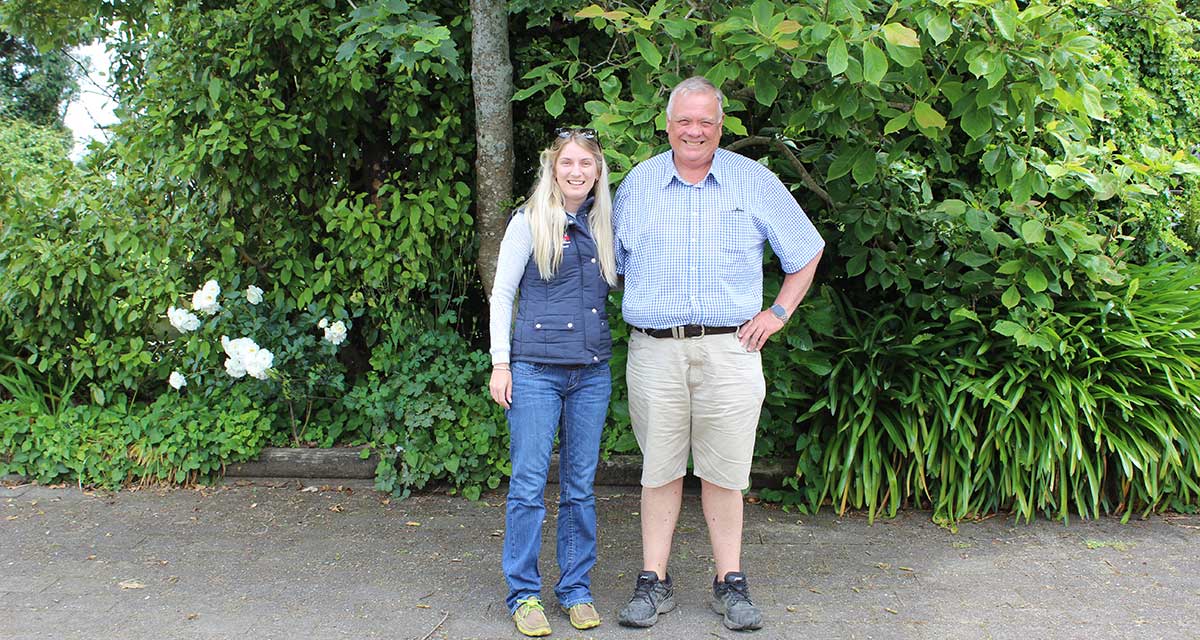2019 Trans-Tasman Exchange scholarship report – Chloe Gould


After receiving the 2019 Trans-Tasman Exchange scholarship at last year’s Angus Youth National Roundup, held in Armidale, I was excited to further expand my industry knowledge and gain an insight to the New Zealand Beef Industry.
I set off on my journey across to New Zealand at the end of November for 15 day. I started in the North Island and worked way down into the South Island. My initial thoughts about the trip and what I hoped to get out of it, was to gain knowledge about their genetics and management practices. But after the first few days in NZ, I quickly realized there was so much about industry and supply chain in New Zealand which I knew very little about, and given my involvement in industry, I was keen to find out. In the 15 days I spent abroad, I went to 11 properties, 9 studs and 2 commercial properties, a feedlot and processing facility. Whilst also taking the opportunity to gain insight to both the dairy and lamb industry.
Over the 3650km I travelled whilst over there, I had multiple key learning experiences that I gained through-out my trip which varied from environmental, to the entire supply chain. New Zealand has major emphasis on environmental, sustainability and welfare aspects and heavily focus on these as a key marketing factors for international markets; providing a ‘clean and green’ image. One of the major environmental influences in NZ that I learnt about was N cap and the requirement for producers to have a set farm management plan to be able to physically acquire or utilize fertilizer. Another key learning aspect I gained whilst in New Zealand, was from their entire supply chain and disconnection of information which is passed back through the supply chain from processors to producers. It was interesting to understand that predominately all their beef, except a small proportion, is fully grass fed and from the few commercial enterprises that I had the opportunity to visit, these producers were able to turn off cattle, fully grass fed between approx. 14-18 months of age – pretty impressive when you think about general Australian conditions. Additional to this, the dairy industry has major influence on the beef industry in New Zealand as a byproduct for the beef industry which drives the commodity market throughout the country, with dairy bulls being worth more than high quality grass fed beef products. Furthermore, it was interesting to gain insight and understand the benefits and challenges that the New Zealand Angus Beef brand – AngusPure is presented with in the industry.
Without a doubt, the knowledge and connections that I have been able to gain in New Zealand on my exchange has proven too be highly beneficial. This an experience I wouldn’t have had the opportunity to gain, had I not gone for the scholarship. The scholarship provides the opportunity to connect with enterprises and companies to gain insight into their operation, which you wouldn’t generally receive if you were to travel to New Zealand on your own accord. Everyone that I approached throughout my travels, both stud and commercial, where so open to hosting and providing insight to their operation. I would like to sincerely thank all of the New Zealand breeders for their hospitality and kindness during my exchange. I would also like to sincerely thank Angus Youth Australia and the New England Travel Centre for the experience and opportunity. I would highly encourage other youth members that would like to pursue a career in the agricultural industry to take opportunities, like this scholarship to extend yourself and gain more knowledge. The connections and networking opportunity you’ll receive through scholarships like the Trans-Tasman Scholarship, are some of the most important constituents you’ll gain in life – take the opportunity to build relationships and connections while you’re young!